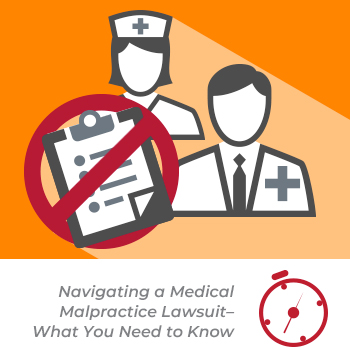
When the funeral director told the family to hire a medical malpractice attorney, Libby’s (name changed) family knew that something had gone horribly wrong, but had no idea what really happened. During a routine procedure to replace a pacemaker part, Libby’s heart muscle had been torn. She died three hours later.After her death, Libby’s family got mixed messages from the hospital staff. Reports from doctors did not match those of the nurses. The family was not informed that a medical error had occurred. Taking the funeral director’s advice, they began looking for a law firm and hired My Advocates, the law firm of Janet, Janet, & Suggs, LLC to investigate their case. Mistake after mistake was revealed during the trial. The jury decided that these errors did cause their mother’s death and awarded the family a substantial verdict.
Stories like Libby’s are common in the United States. Each year, more than 1.3 million Americans are injured by medical errors, resulting in birth injuries, brain damage, paralysis, and death. But, did you know that hospitals and doctors are not required to disclose them?
Medical professionals are entrusted to provide the highest standard of care and treatment to our loved ones and ourselves. When a doctor fails to uphold this standard and harms a patient because of his or her negligence, a skilled personal injury attorney may be able to help you hold the at-fault party accountable and recover compensation for your suffering and loss.
Medical Records May Have Holes
Medical records rarely contain mention of medical mistakes, even if they contributed to a patient’s serious injury or death. Conflicts between medical professionals are also frequently omitted. Hospital management often believes conflicts are not clinically relevant and encourages nurses to avoid mentioning them in records. As a result, information in medical records is often missing or conflicting.
Peer Reviews Keep Patients in the Dark
Hospitals conduct peer reviews when a serious injuries or death occur—behind closed doors. Patients, their families, and their attorneys rarely get to see the results of a peer review. Every state in the US has laws protecting the secrecy of these peer reviews.
“I’m Sorry” Is Not an Admission of Guilt
Laws in 36 states say a doctor’s apology is not an admission of fault. In these states, an apology cannot be used as evidence in a medical malpractice case. These laws may encourage doctors to disclose their mistakes so hospitals can review and prevent them. But an apology does not go very far in compensating a family for the injury or death of a loved one.
Hospitals Rush for Quick, Often Unfair, Settlements
Most hospitals and doctors want to quickly settle claims with patients injured by a medical error to avoid unfavorable publicity. But often, this quick settlement is not a fair one.
Determining fair settlement for an injury caused by a medical error is complex and requires the help of certified expert. The quick compensation from a hospital settlement may not be adequate. Any settlement the hospital will offer is determined by those who made the error and their insurance companies. It may not represent what is best or fair.
Medical Malpractice Attorney’s Responsibility
Our committed personal injury attorneys get many calls and other inquiries every day about possible medical malpractice cases. It’s our job to uncover the facts—often hidden or even under lock and key—and evaluate what happened. If we find the mistakes did cause serious injuries or death, we let the patient or family know. Our medical and legal team works with them to dig deeper and be ready to go to trial if we need to. We also have financial experts that help determine the cost of long-term care and compensation. We empower them to say “No” to inadequate offers from the medical community.
This blog is part of an ongoing series where we examine topics covered in Howard Janet’s book, Navigating a Medical Malpractice Lawsuit. We will be releasing a new blog every Thursday over the next few months.
RELATED POSTS
6 Questions to Ask Potential Medical Malpractice Lawyers
